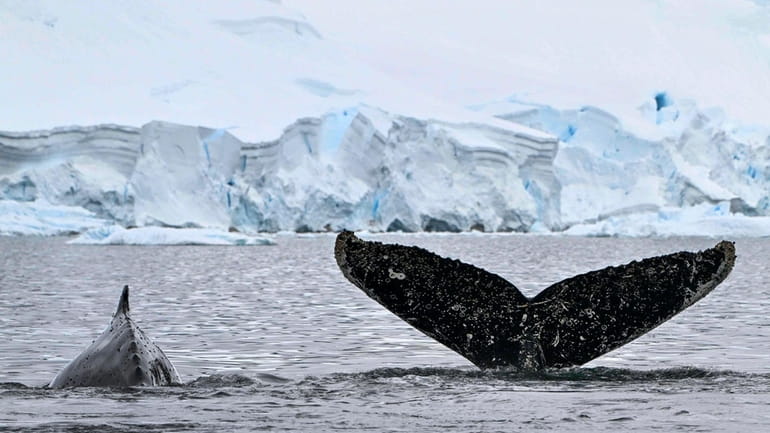What whales can tell us about menopause

A new study of 23 whale species helps answer the question: What evolutionary advantage allowed menopause to evolve? Credit: TNS/AFP/Juan Barreto
Although life can seem to go whizzing by, humans are actually weirdly long-lived animals. A new study helps explain why: menopause.
Female humans lose fertility while still remaining strong, and that trait is extremely rare in the animal kingdom — most keep reproducing until they are near death.
Only five other animal species are known to undergo menopause and experience a long post-fertile phase — all of them toothed whales.
Now scientists have found that the females of those species live on average 40 years longer than females of species that remain fertile. Their findings were published this month in Nature.
The new paper helps solve a question among biologists: What evolutionary advantage would have allowed menopause to evolve?
The most likely explanation is that menopause evolved not as a loss of fertility but a gain of 40-some bonus years. The same may apply to humans, since we live about 40 years longer than chimpanzees.
The researchers combined data on 23 species of toothed whales, five of which showed a post-menopausal phase. An analysis of their behavior paralleled what anthropologists are learning about the natural role of elders in human groups — they serve as leaders and as helpful grandparents.
To understand the evolutionary benefits of menopause, it helps to consider how the concept of the “selfish gene” can explain very unselfish behavior.
Many species, including humans, will help their genes survive by providing care for their offspring and other relatives. Sometimes it’s better for your genes to help your grandkids than to have more babies yourself — such as in social groups where an older mom’s offspring would be competing with her daughters’ offspring for limited resources.
In the whale species that experience menopause, all the offspring stay with the mother for life. That means that the females become increasingly related to their pod-mates as they age, so helping the pod is also helping her genes to survive.
The evolutionary tree shows that the whale species that undergo menopause, which include beluga whales and narwhals, are not all closely related, leading scientists to conclude that menopause evolved independently several times.
Whales in the wild are hard to study. The report’s author, Darren Croft, of the University of Exeter, and his co-authors collected all the data they could from long-term observations as well as data gleaned from mass whale strandings. In those cases, they could measure the ages of whales by counting rings in their teeth, and their reproductive history by studying their ovaries.
